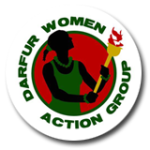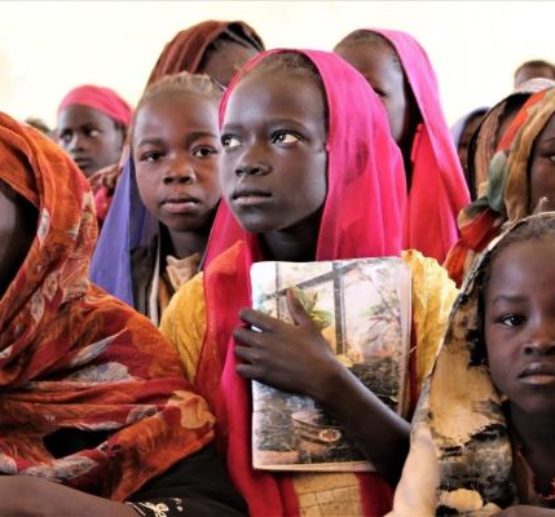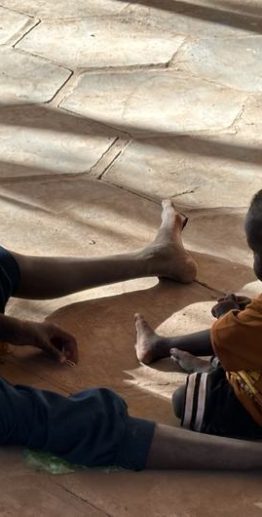On October 6, the United Nations Population Fund (UNFPA) and the United Nations Office for the Coordination of Humanitarian Affairs (OCHA) released new alarming figures documenting that women and girls face widespread health risks and heightened vulnerability to gender-based violence in Darfur and other areas impacted by recent historic flooding in Sudan.
Darfur Women Action Group (DWAG) is gravely concerned about the safety and security of women and girls evacuating their communities due to the ongoing consequential flooding. Immediate action must be taken in response to the needs of women and girls and to prevent further sexual and gender-based violence. Together, we must demand justice be served for all of the victims, and perpetrators are held accountable for their horrific crimes against women and girls.
Beginning in September 2020, heaving rains and flooding in Darfur and other areas of Sudan have been described as the worst the country has faced in over a century. On September 4, the Sudanese interim government declared a three-month state of emergency across the country. By September 11, Sudan’s government had requested humanitarian assistance through the Union Civil Protection Mechanism (UCPM), and the country began receiving water, sanitation, and hygiene products among other items.
The relentless heavy rains and flooding have also fueled the spread of mosquito-borne illnesses. By October 20, an estimated 59,450 people in North Darfur were suffering from malaria. Additional chikungunya cases in Darfur have been on the rise since this past June. At the same time, Sudan continues to battle the COVID-19 pandemic, adding an additional 39 cases since October 10 and bringing the country-wide positive case count to 13,724 people. This unprecedented health crisis delivers an extraordinary burden to already resource-constrained healthcare efforts across the country.
On October 6, OCHA estimated that more than 875,000 people had been affected by the floods, including 121,935 people in Darfur alone. According to UNFPA reporting also released that day, an estimated 206,000 women of “reproductive age” are among the affected living in temporary flood shelters. Yet there they lack safety protection measures, currently not in place, which makes them vulnerable to sexual and gender-based violence. UNFPA also estimates that with more than 20,000 displaced pregnant women, and 2,000 expected to give birth in the next month, many lack access to adequate sanitation measures and reproductive health services.
It has been well documented around the world that women and girls are especially vulnerable to gender-based violence during humanitarian disasters as well as conflicts. OCHA reporting indicates that flooding in Darfur and other areas of Sudan has forced hundreds of thousands of women to flee their homes, and their double loss of shelter and economic ability to afford necessary health needs increases their risk of experiencing gender-based violence. Access to water may be far from these temporary shelters, and the shelters themselves may be located in areas that normalize gender-based violence. Women and girls in Sudan have faced unequal gender-power relations contributing to discrimination and violence against them, and natural disasters only exacerbate these problems.
During al-Bashir’s genocide campaign in Darfur, which began in 2003, rape and gender-based violence against women and girls were stregically used as tools of war. Various forms of gender-based violence, including rape, domestic abuse, sexual harassment, and sex trafficking still target Darfui women today, with many cases documented just this year and fueled in particular by the COVID-19 pandemic. The full extent of sexual and gender-based violence in Darfur and across Sudan remains unknown, because various barriers hinder women from reporting crimes committed against them, including but not limited to social stigma, cultural norms and lack of accountability for perpetrators.
DWAG praises the ongoing humanitarian efforts to protect women and girls from harm, and also provide them with necessary sanitary items. By October 6, humanitarian partners in Sudan had already distributed approximately 20,400 dignity kits that will last women and girls two months and equip them with essential hygiene supplies such as sanitary pads, soap and underwear. Mobile health clinics have also been traveling to areas affected by the flooding, although a main challenge is accessing additional vulnerable women not already reached by aid efforts.
Humanitarian efforts need more funding to ensure that women and girls have access to quality health supplies and care during this period of historic flooding and subsequent displacement. The interim government of Sudan and the international community must prioritize gender mainstreaming in humanitarian response planning and implementation, to ensure that the specific impacts of disasters and conflicts on women and girls are adequately addressed.
In this urgent moment, DWAG calls on the interim government of Sudan to hold gender-based violence perpetrators accountable for their crimes. As Sudan takes steps towards sustainable peace, it is crucial that the transitional government ensure the legal protection of women and prosecute those who violate women’s rights. Protection measures must also be established and enforced in temporary shelters to safeguard the security of the vulnerable women and girls displaced by the floods. DWAG urges the international community and regional actors engaged in the peace process to continue exposing gender-based violence committed against the women of Darfur.




